GREEN REVOLUTION

The construction equipment industry, traditionally reliant on diesel engines and heavy machinery, is undergoing a transformative shift. This “Green Revolution” is driven by the urgent need to reduce carbon emissions, conserve energy, and adopt sustainable practices. As the world grapples with climate change, the construction sector is not only embracing green technologies but also redefining its operational philosophies to ensure a sustainable future.
Equipment Times delves into the various facets of this revolution, highlighting key innovations, industry leaders, and the impact on the global construction landscape.
The green revolution in the construction equipment industry is not just a trend; it is a necessary evolution towards a sustainable future. As the industry embraces electric and hybrid technologies, alternative fuels, and smart construction solutions, it is paving the way for a greener, more efficient, and environmentally responsible construction landscape. The commitment of industry leaders and the collective effort of all stakeholders will ensure that the construction sector plays a pivotal role in achieving global sustainability goals.
The construction equipment industry in India is undergoing a transformative phase, driven by the global imperative to reduce carbon footprints and embrace sustainability. This “Green Revolution” is reshaping how construction equipment is designed, manufactured, and operated, positioning India at the forefront of sustainable industrial practices. As urbanization and infrastructure development surge, the industry’s shift towards eco-friendly innovations is not just a trend but a necessity for a sustainable future.
The Catalyst for Change
Several factors are propelling the green revolution in India’s construction equipment industry:
Environmental Regulations: Stringent emissions standards and environmental policies by the Indian government are compelling manufacturers to adopt greener technologies.
Market Demand: Increasing awareness among consumers and businesses about the environmental impact of construction activities is driving demand for eco-friendly equipment.
Technological Advancements: Innovations in renewable energy, battery technology, and materials science are enabling the development of more efficient and less polluting construction machinery.
Global Trends: Aligning with international sustainability goals and practices is encouraging Indian manufacturers to adopt global best practices.
Innovations Driving the Green Revolution
Electric and Hybrid Equipment: Electric and hybrid construction equipment are at the forefront of this transformation. These machines, powered by batteries or a combination of batteries and traditional fuels, significantly reduce emissions and noise pollution. Companies like JCB, Volvo, and Caterpillar are investing heavily in developing electric excavators, loaders, and other machinery suitable for Indian conditions.
Biofuels and Alternative Energy Sources: The use of biofuels and other alternative energy sources is another promising area. Biofuels, derived from organic materials, offer a renewable and less polluting option compared to conventional diesel. Initiatives to develop solar-powered machinery are also gaining traction, particularly for use in remote or off-grid locations.
Automation and Telematics: Advanced telematics and automation are not only improving operational efficiency but also contributing to sustainability. Automated machinery can optimize fuel usage, reduce idle time, and ensure precise operations, minimizing waste and emissions. Telematics systems provide real-time data on equipment performance, enabling predictive maintenance and reducing unnecessary downtime.
Sustainable Manufacturing Practices: The green revolution extends to the manufacturing processes themselves. Companies are adopting sustainable practices such as using recycled materials, minimizing waste, and implementing energy-efficient production techniques. This holistic approach ensures that the environmental impact is reduced across the entire lifecycle of the equipment.
Challenges and Opportunities
While the green revolution offers numerous benefits, it also presents several challenges:
High Initial Costs: The upfront investment for green technologies can be significant, which may deter small and medium-sized enterprises from adopting them.
Infrastructure for Electric Equipment: The lack of adequate charging infrastructure for electric construction equipment remains a major hurdle.
Technical Expertise: The industry requires skilled personnel to operate and maintain advanced green technologies, necessitating comprehensive training programs.
However, these challenges also present opportunities for growth and innovation. Government incentives and subsidies can mitigate high initial costs, while investments in infrastructure and training can pave the way for widespread adoption of sustainable practices.
Leaders speak…
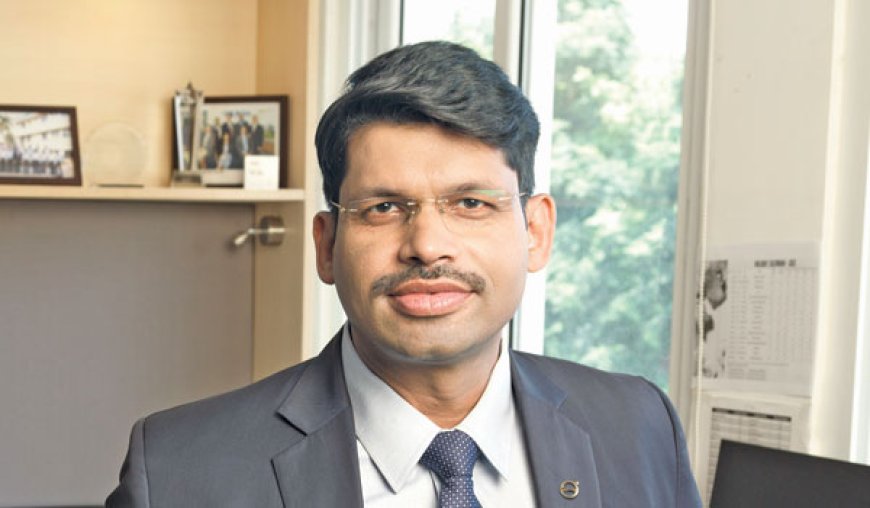
Dimitrov Krishnan, Managing Director, Volvo CE India, said, “The future of the construction equipment industry will increasingly revolve around green technologies. As the government intensifies its focus on sustainable infrastructure development, we anticipate a significant shift towards electric and hybrid solutions, driven by stringent emission norms like the upcoming CEV Stage V norms. CE with alternative fuel technologies such as battery-powered electric and grid-electric are already getting deployed in the market with us and several of our peers have a big product portfolio ready for customers. As we look to the future, the emphasis on digitization and smart technologies, including IoT and telematics, will play a crucial role in optimizing equipment usage and minimizing waste. This transformation is not just about compliance with new emission norms; it represents a broader commitment to sustainability that aligns with global environmental goals. The industry’s active approach to adopting electric equipment, fuel-efficient machinery and alternative fuels is paving the way for a cleaner, more efficient construction landscape.”
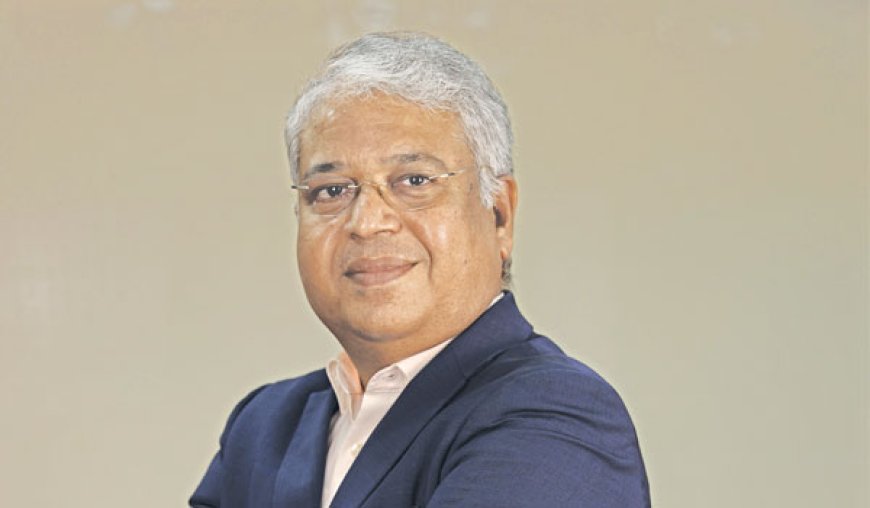
V. G. Sakthikumar, CMD, Schwing Stetter India, said, “At Schwing Stetter India, sustainability is at the core of our innovation. We have implemented several sustainable technologies and practices across our equipment range. Notably, our RA series of concrete recycling machines are designed to minimize waste and promote resource efficiency by recycling leftover concrete, ensuring that no material is wasted. Additionally, we utilize energy-efficient engines and advanced hydraulic systems in our equipment to reduce fuel consumption and emissions. Our commitment to sustainability also extends to our manufacturing processes, where we adopt eco-friendly practices to minimize our environmental footprint.”
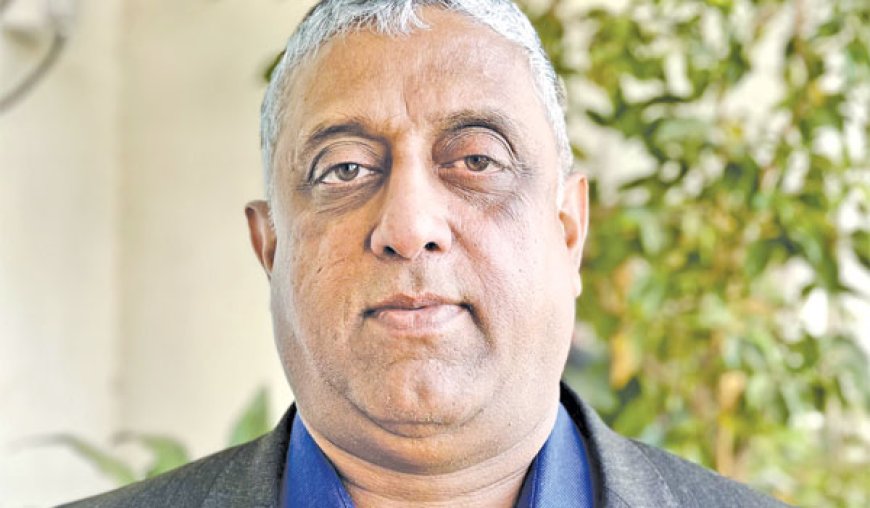
Amarnath Ramachandran, Managing Director, Arx Mining & Construction Equipment, said, “We are of the opinion that fully electric at this stage in India is not really green as the grid cannot handle the load required to charge batteries. This only moves the pollution from the cities to the mining areas which are situated in verdant lush forests. We are working on moving all power shift transmissions to CVT over the next two to three years and then working on providing a hybrid variant. We will also install Hydrogen fueled engines on our machines once our engine partners, Cummins, builds the off-highway variants of these in India. Currently they are working on truck engines.”

Dheeraj Panda, Managing Director, Ammann India, said, “Sustainability is a core focus at Ammann India. We have introduced several sustainable innovations in our manufacturing processes like energy-efficient systems and processes, such as LED lighting and optimized HVAC systems, to reduce energy consumption, laser cutting and robotic welding machines to ensure precise dimensions and reduce rework. Our manufacturing units follow strict waste management protocols including Zero Liquid Discharge (ZLD), ensuring minimal environmental impact. Furthermore, we have embraced green building practices in our new facilities, incorporating rainwater harvesting and recycling systems. We also have plans for adoption of renewable energy sources like solar power for our plants.”
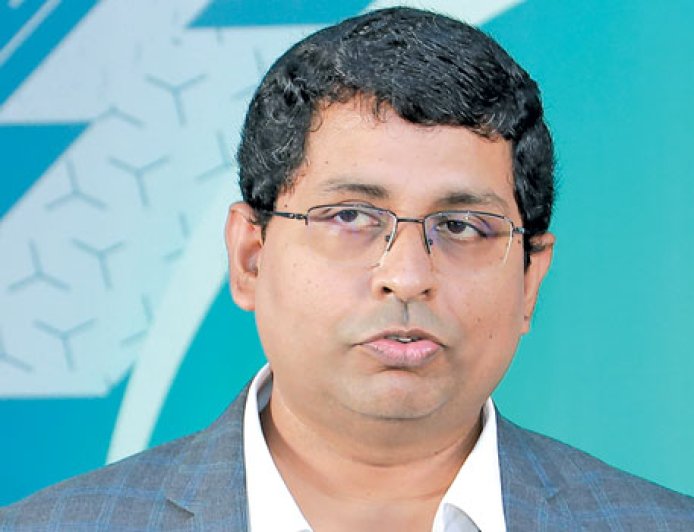
Jaideep Shekhar, VP & Managing Director - APAC & EMEAR, Terex India, said, “Our commitment to sustainability flows from our Company’s purpose to help improve the lives of people around the world and to deliver results for our team members, customers and shareholders within the Terex Way values. In 2023, over half of the machines sold by Terex India were electric, significantly reducing emissions compared to traditional diesel-powered models. The team has also implemented a series of initiatives designed to minimise the environmental footprint of their operations, including reducing truck usage for material transportation to reduce fuel consumption and emissions and switching to energy-efficient LED lighting throughout the facility, further reducing their energy consumption.”.
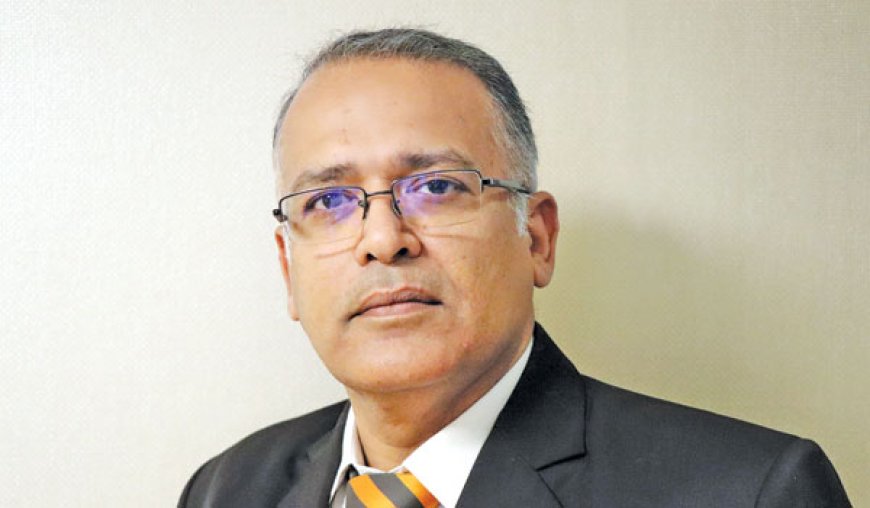
Manish Mathur, CEO, ACE – Action Construction Equipment, said, “One of the most noteworthy advancements in sustainable construction involves the rise of electric-powered equipment. These machines operate emission-free, making them ideal for indoor and urban projects while also reducing noise pollution compared to traditional diesel-powered counterparts. In India, companies like Action Construction Equipment Ltd. are incorporating electric equipment into their product offerings. Another approach to cutting emissions from heavy construction machinery is the use of renewable fuels such as biofuels, hydrogen fuel cells, or compressed natural gas (CNG), which emit far fewer greenhouse gases than fossil fuels.”
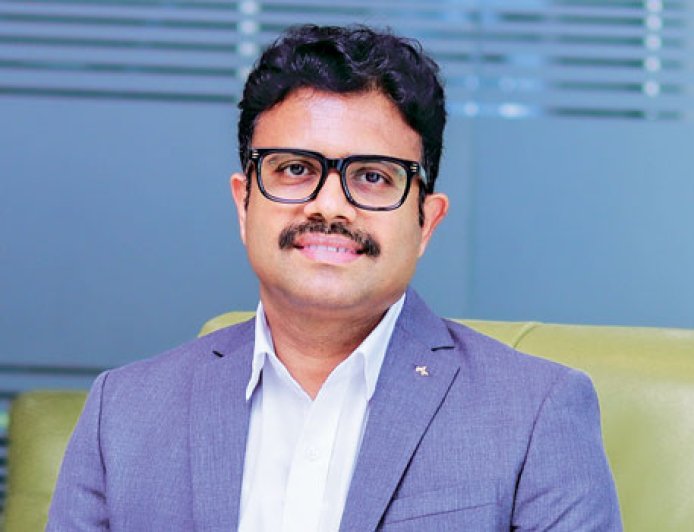
Williams R. J., Managing Director, Hail Stone Innovations, said, “We have our ears on the ground and it is certainly our customers’ demands which drives our company’s innovation, not just in green technology but in the manufacturing of each of our products. Hailstone is into electrification and hybrid technology, big time as we understand that we have to drastically reduce the dependence on fossil fuels. We have introduced electric-powered and hybrid crushing and screening equipment’s which reduces emissions and improve efficiency. We are also using idle-reduction technologies which are systems that reduce engine idling time, saving fuels and reducing emissions. Hailstone is known for best-in-market innovation as we adopt a multifaceted approach in all our operations. Our research and development activities complement our goals. All our partnerships are also in perfect alignment with our futuristic goals. Our continuous improvement in technology and processes ensure that we deliver innovative sustainable construction equipment.”
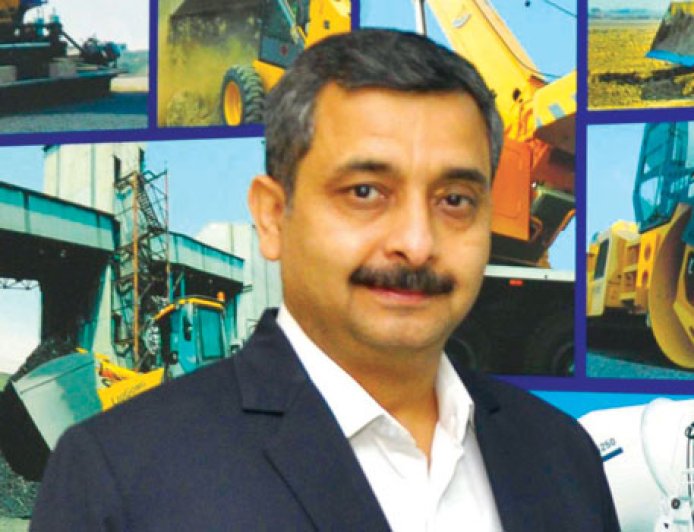
According to Nischal Mehrotra, Sr. Vice President (Sales & Marketing), LiuGong India, “One of the most significant innovations in sustainable construction equipment is the development of electric-powered equipment. Electric-powered construction equipment produces no emissions during operation, making it an ideal choice for indoor projects and urban areas where air quality is a concern. Electric equipment also produces less noise pollution than traditional diesel-powered equipment. Smart construction equipment incorporates the latest digital technology to optimize performance and reduce energy consumption. Sensors, GPS, and telematics can track equipment usage and provide real-time data on fuel consumption, engine performance, and equipment maintenance, allowing construction companies to identify inefficiencies and optimize performance. The maintenance of construction equipment is the cause of around 40% of overrun costs on building projects.”
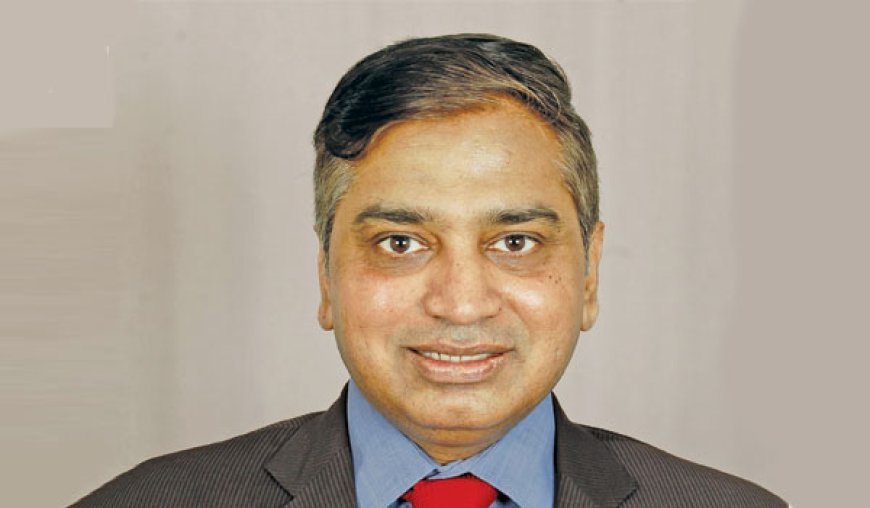
Jalaj Gupta, Business Head, Commercial Vehicles Business Unit, Mahindra & Mahindra, said, “We believe that green technologies will become central to the construction equipment industry very soon. We expect a surge in the adoption of such machinery, which are leading to significant reductions in carbon emissions. To address these demands, the industry is embracing a paradigm shift. Innovation is at the forefront, driving the development of cleaner, more energy-efficient machinery. Energy efficiency and real-time equipment monitoring are becoming increasingly prevalent, reducing the carbon footprint of construction projects. From optimising fuel efficiency to harnessing renewable energy sources, the industry is pioneering solutions that resonate with the collective imperative for a greener tomorrow. By enhancing the operational fuel efficiency of our offerings, we aim to significantly curtail energy consumption and emissions, contributing to a more sustainable future across the construction industry.”

Siva Ramalingam, Managing Director, Fiori Concrete Machines India, said, “Through usage of smart technology, the Fiori mixers maximize complete use of the available engine & hydraulic power thereby reducing wastages. The usage of green technologies is evolving in the construction equipment industry very rapidly and it will become more widely used in the coming years. Innovation in developing more energy-efficient machinery will be particularly important. Optimising fuel efficiency while harnessing renewable energy would be key to achieving the goals of environmentally sustainable construction equipment.”
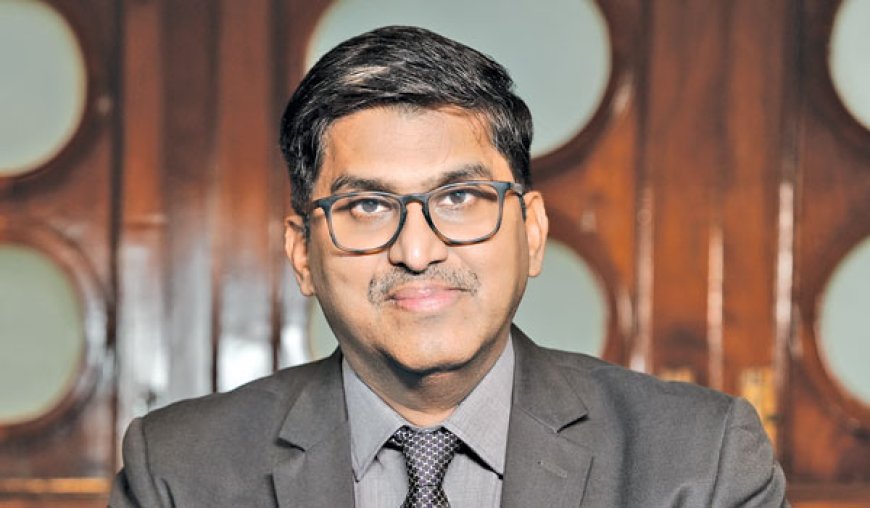
G. Arunkumar, President, Epiroc India, said, “Electric trolley trucks and other underground equipment offers several advantages, including reduced noise pollution, lower operating costs, and zero emissions at the point of use. Let alone the percentage of renewables in grid power, the biggest advantage will be, ability to go deeper as ventilation demand will drop significantly, with battery-electric vehicles. Epiroc on its own, at Nashik and Hyderabad manufacturing facilities, generates solar power sufficient to run, its operations complying with Pollution Control Board’s directive for water and air. We are working with our vendors, to declare their CO2 emissions and plan for reduction and elimination, gradually.”
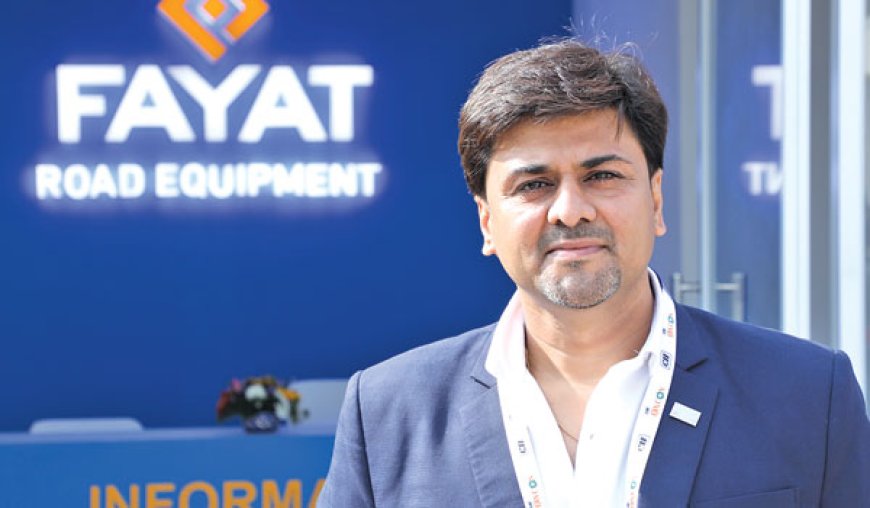
Vishwesh Rai, General Manager, Fayat Road Equipment - Sales India, Our commitment to technological innovation is evident through initiatives like Dynapac Z Era program, which focuses on developing sustainable technologies. This includes the introduction of electric rollers and pavers, as well as seismic technology in compactors. Dynapac’s seismic technology adjusts compaction energy based on soil characteristics, optimizing efficiency, reducing fuel consumption, and enhancing compaction quality—a testament to dedication to operational excellence and environmental sustainability. MatManager, Dynapac’s connected paving quality system, exemplifies their commitment to precision and quality. By monitoring key parameters in real-time and documenting performance analytics, MatManager ensures optimal paving results while controlling material consumption. This advanced system not only enhances project efficiency but also sets industry standards for quality assurance and performance documentation.
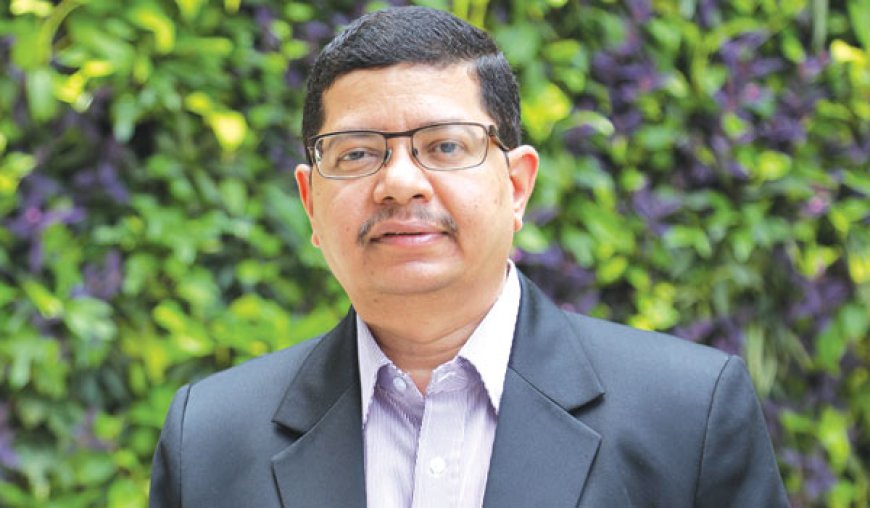
Rajendra Petkar, President & Chief Technology Officer, Tata Motors, said, “The future lies in embracing a diverse mix of green fuels. Closed-loop operations involving shorter distances and lighter loads will benefit from electric trucks supported by fast-charging infrastructure, while for long-haul journeys, hydrogen, CNG and LNG are more feasible. Hydrogen fuel cell, with zero emissions and an extended range, shows promise. CNG is readily available in many regions across the country, and distribution for LNG is progressing fast – natural gases provide a more immediate alternative to diesel for specific applications. A multi-pronged approach, with different fuels catering to different trucking needs, will pave the way foran overall greener logistics landscape. Tata Motors, committed to achieving its net zerogoal by 2045, consistently explores innovative clean technology solutions for commercial vehicles.”

Rajesh Nath, Managing Director, German Engineering Federation (VDMA) India, said, “The construction equipment industry is rapidly advancing in green technology, focusing on electrification, hybrid solutions, and alternative fuels like biofuels and hydrogen. Electric and hybrid machines are gaining ground due to their zero or reduced emissions, particularly beneficial in urban areas. Innovations in engine technology and aftertreatment systems are also crucial, ensuring compliance with strict emissions standards without sacrificing performance. Telematics systems play a key role in optimizing fuel efficiency and machine performance, while design improvements emphasize sustainability through lightweight materials and circular economy principles. These trends highlight a concerted effort to mitigate environmental impact while meeting operational demands in construction.”
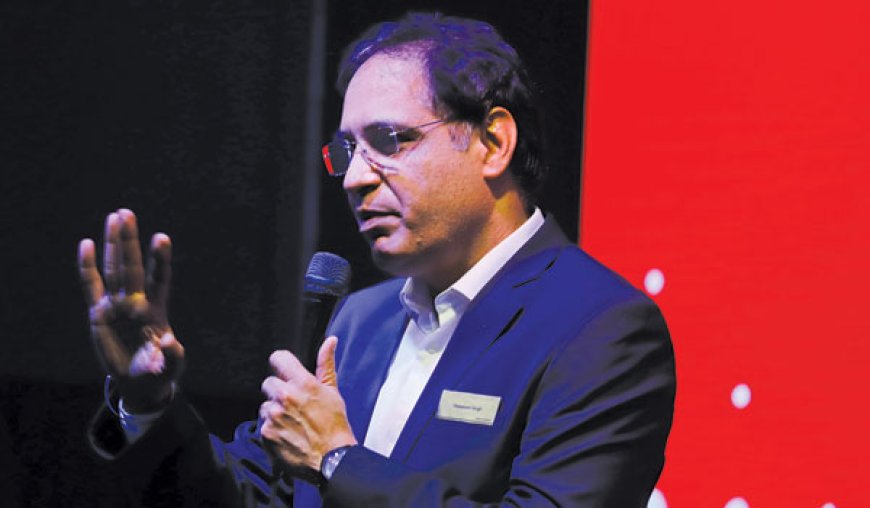
Harpreet Singh, VP, Aggregates, Metso India, said, “Sustainable Technologies and Practices: Metso has implemented a range of sustainable technologies in equipments, such as the use of iodegradable lubricants and energy-efficient engines in the Lokotrack® mobile crushing plants. Metso integrates advanced technologies across the range of sand manufacturing equipment in India. The Metso crushers, including jaw crushers, cone crushers, and impact crushers, are designed for maximum efficiency in reducing materials to produce high-quality manufactured sand. Additionally, the washing equipment, such as MWS RocSand and air classifiers AC series, ensures thorough cleaning and grading of sand particles, minimizing environmental impact by optimizing water usage and reducing waste.”

Dibya Das, Director - Sales & Business Development, Juggernaut Equipment, said, “Sustainability has become one of the core focus points for customers in today’s scenario. The operational cost of diesel operated equipment are going higher and implementation of stringent norms on Engine manufacturers in the near future will result in higher Capex & Op-ex cost for these equipment. The demand for green technology equipment which has a very low O & M cost, would become the choice of equipment in near future. The trend for the same is already visible in the market. We are continuously working on improving the energy efficient systems in our equipment to create a unique name for ourselves. Currently we have one of the largest range of Battery operated heavy duty equipment to offer in the market and we shall continue to add products in our range.”

Abhijeet Gawde, Head - Business Development and Marketing, Construction Business of Godrej & Boyce (Godrej Enterprises Group), said, “At Godrej & Boyce, environmental stewardship is at the core of our operations. To minimize our carbon footprint, we have implemented eco-friendly production processes and energy-efficient technologies. We adhere to stringent waste management protocols, recycling water and other materials to reduce waste. Our 4 Ready Mix Concrete (RMC) batching plants in the Mumbai-MMR & Pune region have been commended with the ‘Green Pro’ certification by the Indian Green Building Council (IGBC). Godrej Construction is one of the first in the RMC industry to switch to 100% green energy. Our 6 out of 7 Ready Mix Concrete manufacturing plants are switched to ‘GREEN POWER’.”








